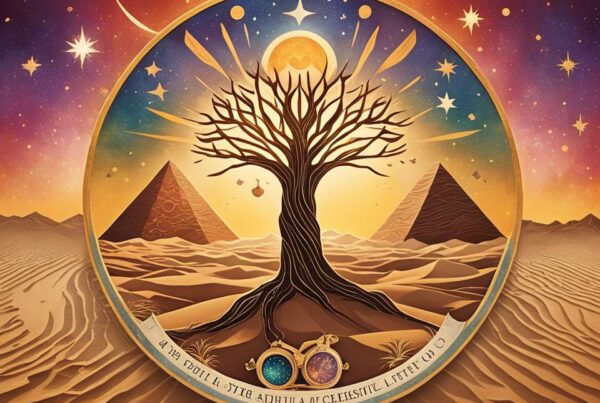For readers seeking a raw and inspiring adventure, “Wild: From Lost to Found on the Pacific Crest Trail” by Cheryl Strayed is an audiobook worth exploring. This memoir recounts the author’s journey hiking over 1,000 miles along the Pacific Crest Trail, alone and with no prior hiking experience. Strayed’s story is a captivating exploration of self-discovery, personal growth, and resilience.
The author poignantly writes about her struggles with addiction, grief, and heartache, which led her to seek solace on the trail. As she hikes through the scenic wilderness, she reflects on her past, confronts her fears, and ultimately finds inner peace.
Key Takeaways
- Cheryl Strayed’s “Wild” is a moving account of self-discovery and resilience.
- The Pacific Crest Trail serves as a stunning and significant setting for the memoir.
- Strayed’s writing style and narrative voice create a powerful reading experience.
- The audiobook performance effectively captures the emotional essence of the memoir.
- Overall, “Wild” is a must-read for those seeking a transformative and inspiring adventure story.
About the Author
Cheryl Strayed is an American writer and novelist best known for her memoir “Wild: From Lost to Found on the Pacific Crest Trail.” Born in 1968 in Pennsylvania, Strayed grew up in Minnesota and studied at the University of Minnesota. After a string of personal tragedies, including the death of her mother and the dissolution of her marriage, Strayed set off on a solo hike along the Pacific Crest Trail.
Strayed’s writing career began as an advice columnist under the pseudonym Sugar. Her work appeared in the popular online column “Dear Sugar” on the website The Rumpus. She later published a collection of these columns in the book “Tiny Beautiful Things: Advice on Love and Life from Dear Sugar.” In addition to “Wild,” Strayed has written the novels “Torch” and “Brave Enough.”
“Writing is always about the present moment, about what is urgent and vital and electric and alive within us now.”
Strayed’s personal struggles and triumphs, as well as her love for the outdoors, have influenced much of her writing. Her work often explores themes of grief, loss, and resilience. In 2012, “Wild” was chosen as the first selection for Oprah Winfrey’s revived Book Club 2.0 and became a #1 New York Times bestseller. Strayed currently lives in Portland, Oregon, with her husband and children, where she continues to write and inspire readers around the world.
Overview of the Plot
Cheryl Strayed’s memoir “Wild: From Lost to Found on the Pacific Crest Trail” follows her tumultuous journey hiking the Pacific Crest Trail, which spans over 1,000 miles from California to Washington. After grieving the loss of her mother and the end of her marriage, Strayed makes the impulsive decision to hike the trail solo, despite her lack of experience and physical preparedness.
Throughout her hike, Strayed faces numerous challenges, including severe weather conditions, physical exhaustion, and dangerous encounters with wildlife. She also confronts her past mistakes and struggles to forgive herself for past traumas. Along the way, she meets fellow hikers who provide support and camaraderie, and ultimately emerges from the journey with a newfound sense of strength and resilience.
Strayed’s honest and raw storytelling takes readers on a transformative journey, exploring themes of self-discovery, resilience, and the power of nature. Her memoir has captivated audiences and inspired countless individuals to embark on their own personal journeys of growth and healing.
Importance of Setting
The Pacific Crest Trail serves as a crucial backdrop for Cheryl Strayed’s memoir, providing an immersive and natural setting that helps connect readers with her transformative journey. The trail spans over 2,000 miles through diverse natural landscapes, from the arid deserts of California to the snow-capped mountains of Washington state.
These natural landscapes play a major role in the story and contribute to the overall narrative of self-discovery and personal growth. Strayed’s encounters with wildlife and the challenges of outdoor adventure help to showcase her resilience and determination, creating a relatable and powerful story for readers.
The sense of isolation and self-reliance that comes with hiking the Pacific Crest Trail also helps to cultivate an introspective atmosphere that supports Strayed’s journey of self-discovery. Through her interactions with nature, Strayed is able to process her past and come to a deeper understanding of herself while also forging a deeper connection to the natural world.
Character Analysis
Cheryl Strayed’s journey on the Pacific Crest Trail is not just a physical one, but also a mental and emotional one. Throughout her trek, she interacts with various supporting characters who shape her self-discovery.
One significant character is Greg, who she meets during the early stages of her hike. Despite their brief encounter, his words encourage her to continue her journey. In contrast, the character of Frank leaves a more lasting impression as he offers Strayed guidance and support, becoming a father figure of sorts.
However, the most important character in Strayed’s self-discovery is undoubtedly herself. As the story progresses, she learns to let go of her past and embrace the present, coming to terms with her flaws and mistakes. Through her interactions with the supporting characters, she gains a newfound sense of empathy and compassion.
“I had to change. Not into a different person but back into the person I used to be—strong and responsible, clear-eyed and driven, ethical and good. And the PCT would make me that way. There, I’d walk and think about my entire life. I’d find my strength again, far from everything that had made my life ridiculous.”
Overall, Cheryl Strayed’s interactions with supporting characters serve as a catalyst for her self-discovery. Through her journey, she learns about herself, her past, and ultimately, how to move forward towards a brighter future.
Writing Style and Narrative Voice
One of the most notable aspects of “Wild” is Cheryl Strayed’s unique writing style and narrative voice. As a memoir, Strayed’s writing is personal and introspective, allowing readers to delve deep into her thoughts and emotions as she embarks on her journey along the Pacific Crest Trail.
Strayed’s writing style is characterized by vivid and detailed descriptions of the natural landscapes and outdoor adventure, providing readers with an immersive reading experience. Her use of figurative language, such as metaphors and similes, adds depth and complexity to her memoir, while also serving to highlight the powerful emotions she experiences throughout her journey.
In terms of narrative voice, Strayed adopts a conversational and introspective tone that draws readers in and makes them feel as though they are experiencing the journey alongside her. Her frank and honest reflections on her past mistakes and personal struggles make her journey all the more relatable and inspiring.
“I knew that if I allowed fear to overtake me, my journey was doomed. Fear, to a great extent, is born of a story we tell ourselves, and so I chose to tell myself a different story from the one women are told. I decided I was safe. I was strong. I was brave.”
Overall, Strayed’s writing style and narrative voice are essential components of the unique reading experience that is “Wild.” Through her honest and introspective storytelling, she invites readers to join her on a transformative journey of self-discovery and personal growth.

Themes Explored
In “Wild,” Cheryl Strayed embarks on a transformative journey that explores several key themes, including self-discovery, resilience, nature, and personal growth.
Through her experiences on the Pacific Crest Trail, Strayed discovers who she is and what she is capable of achieving. Her journey highlights the importance of taking risks and stepping outside of one’s comfort zone to achieve personal growth.
Additionally, Strayed’s resilience in the face of adversity is a testament to the human spirit. She endures physical and emotional challenges and emerges stronger and more self-assured.
Finally, the connection to nature is a recurring theme throughout the memoir. Strayed finds solace in the natural world, and her experiences on the Pacific Crest Trail allow her to connect with and appreciate the beauty of nature in a way she never had before.
Overall, “Wild” is a powerful exploration of the human spirit and the transformative power of nature. It is a must-read for anyone seeking self-discovery and personal growth.
Audiobook Performance
When it comes to audiobook review, the narrator’s performance is a crucial factor in the overall listening experience. In the case of “Wild,” narrator Bernadette Dunne delivers an exceptional performance that captures the raw emotions and essence of Cheryl Strayed’s memoir.
Dunne’s delivery is nuanced and engaging, providing a sense of intimacy as if the author is speaking directly to the listener. Her ability to convey the range of emotions felt by the author, from despair to hope, is impressive. Additionally, Dunne’s pacing and tone are well-suited to the narrative, making for a captivating and enjoyable listen.
Overall, Dunne’s performance is a standout element of the “Wild” audiobook and enhances the already compelling story. Listeners are sure to be impressed by her skillful narration, making this version of the memoir a must-listen for audiobook fans.
Critical Reception
Upon its release, “Wild: From Lost to Found on the Pacific Crest Trail” received widespread critical acclaim, earning positive reviews from many reputable publications and sources. The book’s honest and raw portrayal of self-discovery amid challenging circumstances struck a chord with readers and critics alike.
The New York Times praised the memoir, stating, “Strayed’s journey is both emotional and physical, and her story is both compelling and inspirational.” Similarly, NPR deemed the book “a gifted storyteller’s account of an extraordinary journey” and awarded it as one of their Best Books of the Year.
However, “Wild” was not without its detractors. Some reviewers criticized the book for being self-indulgent or lacking depth, feeling it merely scratched the surface of Strayed’s emotional journey. Nevertheless, the book’s overwhelmingly positive reception among readers and critics cemented its place as a modern classic in the genre of memoirs.
“It’s not very manly, but I cried while reading #Wild by @CherylStrayed. I enjoyed it, but mostly I just cried.” – John Green, Author
Comparison to Film Adaptation
Following the success of the audiobook, “Wild” was adapted into a film directed by Jean-Marc Vallée in 2014, starring Reese Witherspoon as Cheryl Strayed. While the film received critical acclaim and was a box office success, it differs significantly from its source material.
The film captures the essence of Strayed’s transformative journey, but the compressed storytelling leaves out many details and events from the book. However, the film format also allows for visual storytelling that enhances the natural landscapes and outdoor adventure that are integral to the memoir.
One of the strengths of the audiobook is its ability to capture the nuances of Strayed’s writing style and narrative voice. The first-person narration also allows the listener to experience the emotional depth of her journey in a unique way that is difficult to replicate in a visual medium.
Overall, each medium has its own strengths and weaknesses in adapting “Wild” to the screen. While fans of the memoir may have different preferences, both the audiobook and film versions offer compelling interpretations of Cheryl Strayed’s transformative story.
Impact and Legacy
Since its publication, “Wild” has left a lasting impact and legacy as a powerful memoir. Cheryl Strayed’s honest and raw account of her transformative journey on the Pacific Crest Trail has inspired readers to embrace the power of nature, self-discovery, and personal growth.
The memoir has also contributed to the broader cultural conversation surrounding mental health, grief, and resilience. “Wild” has resonated with readers who have experienced their own struggles and found solace in Strayed’s words.
“Cheryl Strayed has written a memoir that has all the elements of a timeless classic […] It’s about forgiveness, acceptance and change. And it’s about beating back demons with determination, self-awareness and courage. ” – Holly Corbett, Elle Magazine
As a best-selling author and cultural icon, Cheryl Strayed continues to inspire readers around the world. Her memoir has had a lasting cultural impact, and its legacy will continue to influence those seeking personal growth and self-discovery.
The Power of a Memoir
“Wild” is an example of the power a memoir can have on readers. Strayed’s willingness to share her personal journey has connected with audiences on a deep level, demonstrating the value of vulnerability and honesty in storytelling.
“What makes Wild unique is that it is more than just a wilderness adventure. It is a book about one young woman’s search for meaning in her life […] Strayed’s honesty is impressive and sometimes heartbreaking.” – Thomas E. Kennedy, The Boston Globe
The memoir genre continues to be a popular avenue for authors to share their stories and connect with readers. “Wild” remains a shining example of the incredible impact a memoir can have on its audience.
Conclusion
Overall, “Wild: From Lost to Found on the Pacific Crest Trail” by Cheryl Strayed is a captivating audiobook that takes listeners on an emotional journey of self-discovery, resilience, and connection to nature. Through her vivid and masterful writing style, Strayed paints a picture of the Pacific Crest Trail and the challenges she faced along the way.
The narrator’s performance adds to the overall listening experience and captures the emotions and essence of Strayed’s memoir. The critical reception of “Wild” has been largely positive, with many praising Strayed’s honesty and vulnerability in her writing.
While the film adaptation of “Wild” has its strengths, the audiobook version remains the most authentic and immersive experience for listeners.
In conclusion, “Wild: From Lost to Found on the Pacific Crest Trail” is a must-listen for anyone who enjoys a deeply personal and transformative story. Strayed’s legacy as a memoirist is secure, and her work continues to impact readers and contribute to the broader cultural conversation.



